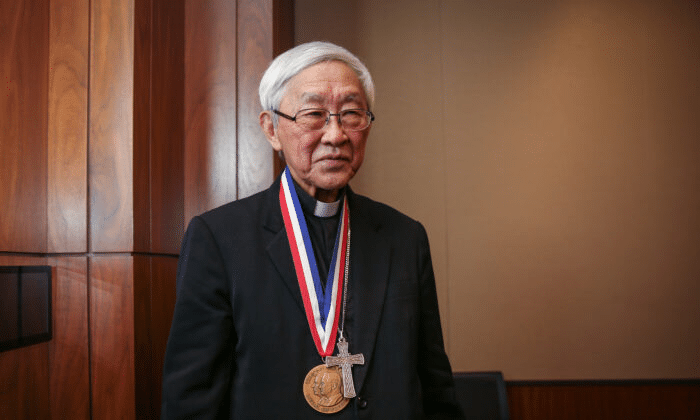
One of Asia’s top Catholic cardinals said the arrest of Cardinal Joseph Zen highlights “the situation for human rights and threats to religious freedom in Hong Kong.”
Myanmar Cardinal Charles Bo issued after the Hong Kong authorities arrested Zen and accused him of violating the territory’s draconian security law, which was imposed on the former British colony by Beijing in 2020, after a series of pro-democracy protests in the territory. The cardinal has participated in a fund that is raising money for the defense of those accused under the security law.
Zen was released on bail the same day as his arrest after hours of questioning by police.
“Hong Kong used to be one of Asia’s freest and most open cities. Today, it has been transformed into a police state,” the Myanmar cardinal said.
“Freedom of expression, freedom of the press, freedom of assembly and association, and academic freedom have all been dismantled. There are early signs that freedom of religion or belief, a human right set out in Article 18 of the Universal Declaration of Human Rights and the International Covenant on Civil and Political Rights, to which Hong Kong is a party, is threatened,” Bo continued.
The cardinal’s statement is one of the strongest to appear after Zen’s arrest, with the official Vatican statement only noting “concern” over the arrest, and that the Holy See was “following the development of the situation very closely.”
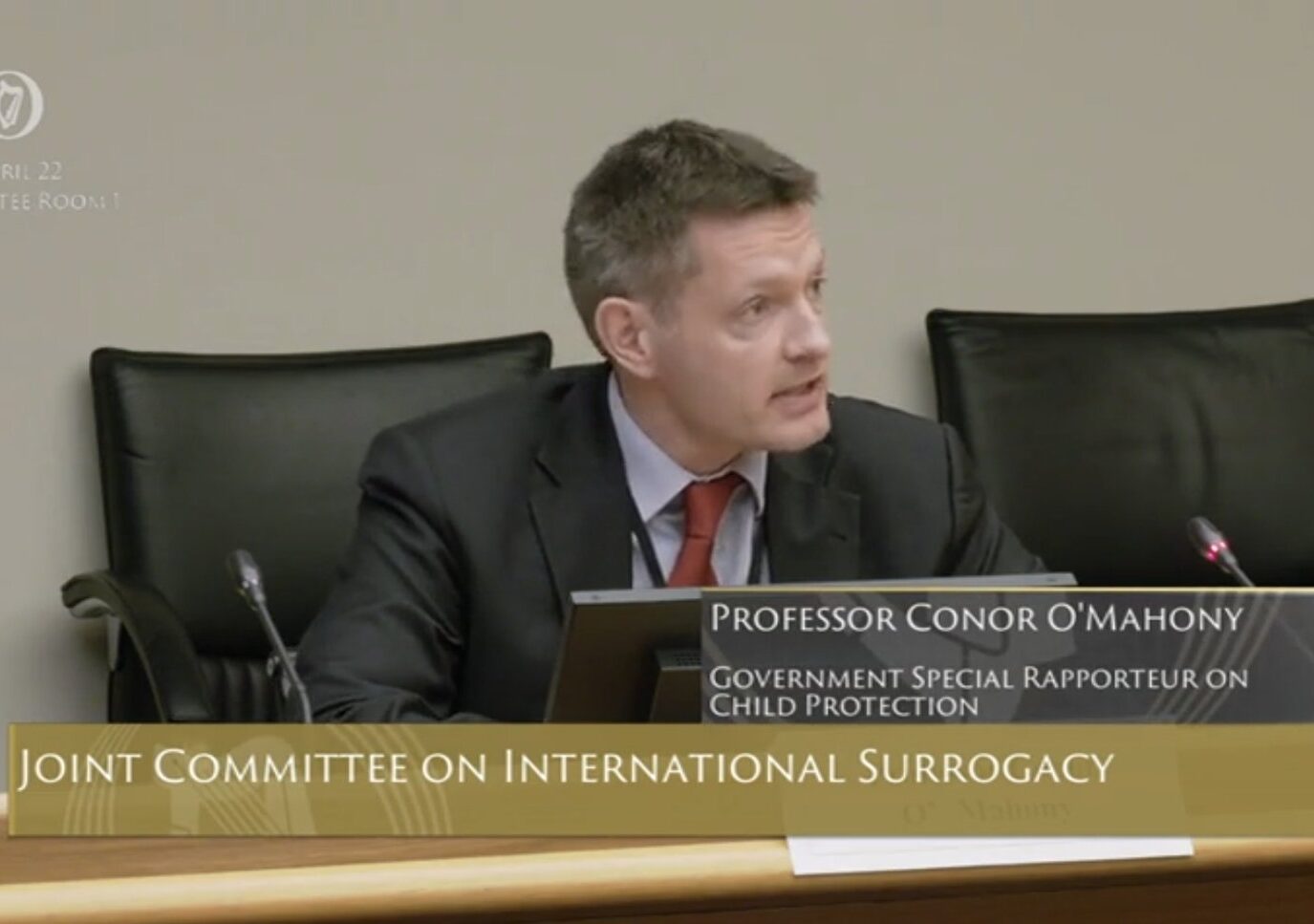
The three-month timeline for the Oireachtas Committee on International Surrogacy to consider and make recommendations on the matter is too short, Government Special Rapporteur on Child Protection Prof Conor O’Mahony has said.
The target of completing work by the committee on the relevant Assisted Human Reproduction Bill, leading to legislation on surrogacy, was “very, very tight and is, in some senses, arbitrary”, Prof O’Mahony said.
“Whatever we enact is going to regulate surrogacy in Ireland for a generation,” he said, “so I would be of the view that it would be much better for it to take another six months, or 12 months if necessary, to get it right.”
He “would rather see this Bill coming back around next year than being enacted in its current form”.

Many Americans, especially those who are highly religious Christians, express discomfort with techniques that in some cases blend the human body with machine-enhancements like brain chip implants, according to a Pew Research Center report.
Among U.S. adults with a high level of religious commitment, 81% say that the widespread use of computer chip brain implants for faster and more accurate information processing would be “meddling with nature and crosses a line we should not cross.” In contrast, Americans with a low level of religious commitment are evenly divided on this question: 50% say that brain chip implants cross a line that should not be crossed, and 49% more closely identify with the notion that “we are always trying to better ourselves and this idea is no different.”
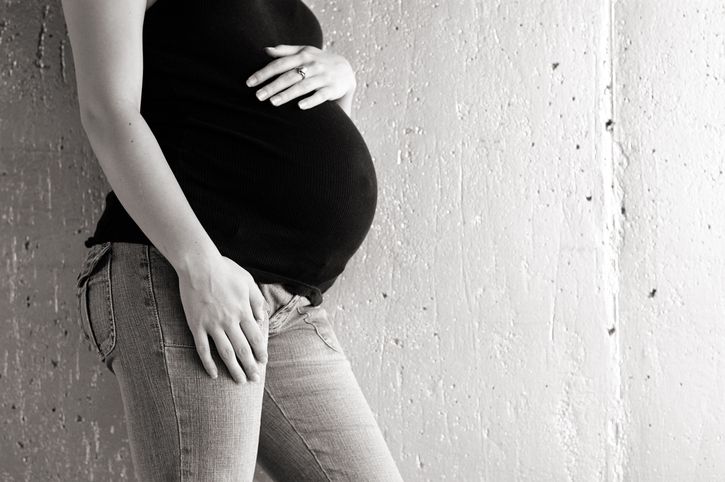
Spain is finalising the details of a draft law that would guarantee the right to seek an abortion in the country’s free public healthcare system and scrap the requirement for 16-year-olds and above to obtain parental consent.
This follows a move last month to criminalise anyone trying “to impede (a woman) from exercising her right to abortion” through “bothersome, offensive, intimidating or threatening acts”.
Sources from Spain’s Equality Ministry confirmed last week that the draft legislation was in its final stages. Media outlet Cadena SER said it would be submitted for cabinet approval tomorrow.
While the final details of the proposed law are not clear, one of the radical shifts is the scrapping of parental permission for 16 and 17-year-olds, a measure that was introduced by the former conservative government in 2015.
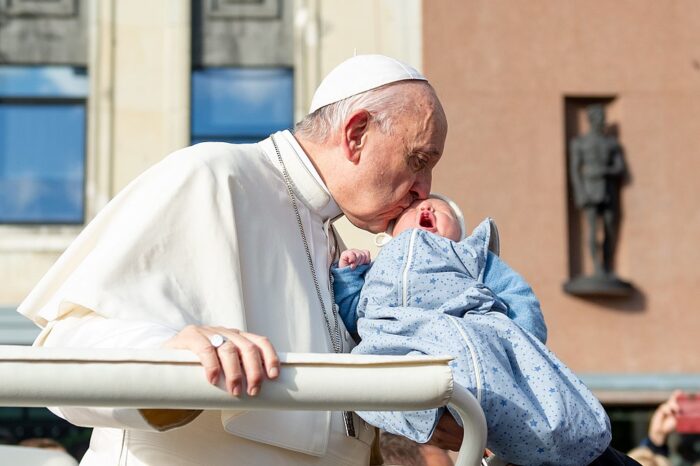
The steady decline of birthrates across Europe and the West are signs of a new form of poverty that deprives humanity of a future, Pope Francis said. Births all across Europe, including Ireland, are well below replacement level.
Families unable to have children and young people who struggle with having a family due to economic hardship or the allure of “mediocre substitutes” risk turning the “beauty of a family full of children” into a “utopia, a dream that is difficult to fulfill,” the pope said in a message to participants of a conference on low birthrates in Italy.
“This is a new poverty that scares me,” he said. “It is the generative poverty of those who discount the desire for happiness in their hearts, of those who resign themselves to watering down their greatest aspirations, of those who are content with little and stop hoping for something great.”
According to the national statistics agency, ISTAT, Italy’s birthrate hit an all-time low with 399,431 births in 2021 compared to 404,892 in 2020. Italy, Malta, Spain, Greece and Luxembourg have the lowest fertility rates in Europe.

The 90-year-old former Catholic bishop of Hong Kong is believed to have been detained in his role as a trustee of the 612 Humanitarian Relief Fund, which helped pro-democracy protesters to pay their legal fees.
Zen, who stood down as Hong Kong’s Catholic bishop in 2009, is a supporter of the pro-democracy movement in the territory.
In 2020, a sweeping National Security Law came into force, criminalising previously protected civil liberties under the headings of “sedition“ and “foreign collusion.”
Before the law’s implementation, many Catholics, including Zen, warned that it could be used to silence the Church in Hong Kong.
Soon after the news broke, Matteo Bruni, spokesman for the Vatican, said that “the Holy See has learned with concern the news of Cardinal Zen’s arrest and is following the development of the situation with extreme attention.”
The U.S. State Department condemned the arrest as the latest example that the city’s authorities “will pursue all means necessary to stifle dissent and undercut protected rights and freedoms.”
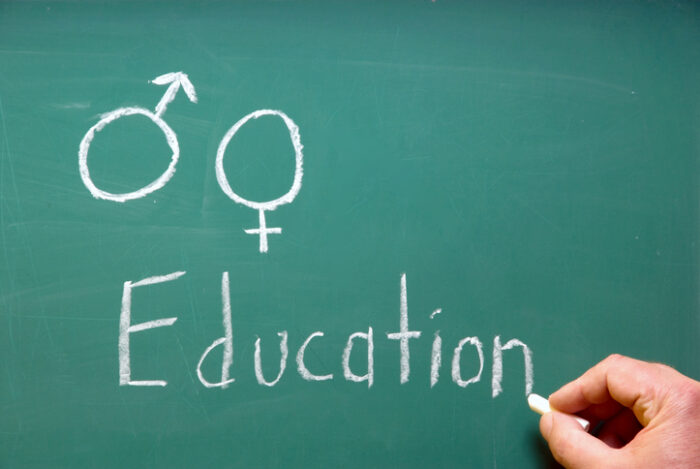
A group of parents are taking the Welsh Government to the High Court over concerns that mandatory Relationship and Sex Education (RSE) lessons as part of the new curriculum will be ‘sexualising children’. The mandatory nature of the lessons is seen as an attack on parental rights.
The Public Child Protection Wales group say children as young as three will be taught about “sensitive and arguably inappropriate topics”, including gender ideology, and that parents are being disenfranchised by being denied the right to remove their child from sex education.
Kim Isherwood says the “new mandatory element also means that every child, aged three-16, must take part. It cannot be avoided by anyone, and there are no rights for parents to request information on what will be taught, at what age, or to ask that their child sit out.”
Another parent, Lucia Thomas, said: “We are deeply concerned that in our current culture, there is a progressive, aggressive lobby which is seeking to push onto children and young people ideologies which parents would find inappropriate.
“School is a place to learn about vital biology, learn how to develop relationships (with both sexes) and to develop respect. But, as parents, we believe what is happening here is the sexualisation of children, not the education of children,” she said.
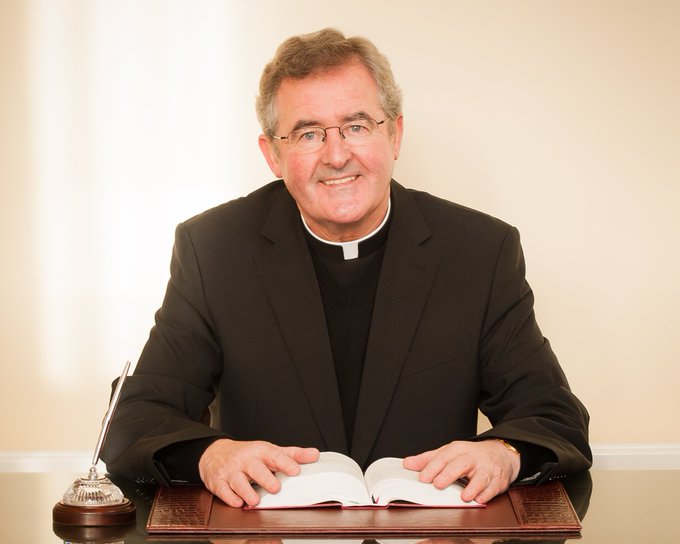
A Catholic bishop has warned that, “If we dismiss our past as a source of shame and embarrassment only, we risk depriving a new generation of connection with deep wells of spirituality.” He believed that attacks on the Church had now gone too far.
Bishop William Crean of Cloyne made the remarks at Knock Shrine in Sunday.
He said, “The odium of the nation has been poured out on virtually all religious women and men from previous generations.” He indicated that this overlooked the fact that “All who responded to a vocation did so with generosity and humility and having expended their lives in nursing, teaching or social outreach they left the world without a cent in the pockets of their shrouds. They gave of their all for others.”
He told the congregation: “We need a vision for the 21st century that acknowledges both the light and shadow of our religious legacy, appreciate its richness, learn from its failures and take forward all that was best in forging a shared future”.
“We need to come to accept our religious heritage as part of what we are. Memory can be both painful and powerful. It should never be dismissed. If we dismiss our past as a source of shame and embarrassment only, we risk depriving a new generation of connection with deep wells of spirituality and inspiration for living. Without these riches we risk walking headlong into the arms of a sterile secularity where political correctness robs us of genuine colour and sense of joy and humour,” he added.
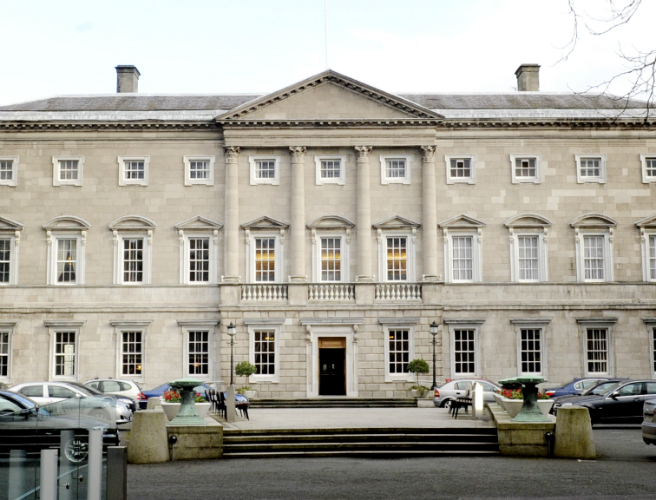
The daily Dáil prayer “sends a bad signal” by promoting a religious outlook that many Irish citizens are totally opposed to, according to far-left TD, Richard Boyd Barrett.
Every Dáil session begins with a short prayer, in English and as Gaeilge, before deputies take part in a 20-second moment of reflection. This happens in other parliaments as well, including in America.
In a tweet on May 10, Labour TD Aodhán Ó Ríordáin said that rather than being a trivial matter, the issue “goes to the heart of what a Republic is”.
Speaking on Newstalk, Dún Laoghaire TD Richard Boyd Barrett said religion is a private matter that has no place in Dáil Éireann.
“It sends a bad signal, to my mind, that at the beginning of the day, when we are discussing the welfare of all of our citizens and the services and representation we have to deliver that we are giving pre-eminence to a particular religious outlook – often when that outlook would be at variance with the views, feelings and beliefs of many of our citizens,” he said.
“Right across the board we need a complete separation of Church and State so that religious views or the lack of them is a private matter. The institutions of the State or democracy and indeed the State agencies that deal with health, education, welfare and housing should be completely separate from any particular religious outlook on things.”
The US Senate voted against an abortion rights bill yesterday as some pro-choice legislators objected to the lack of conscience protections for institutions such as Catholic hospitals.
In a largely symbolic effort in response to the Supreme Court’s draft opinion overturning Roe v. Wade, the Senate voted 51-49 against a bill that would have gone far beyond the current abortion regime and made the procedure largely available throughout nine months of pregnancy.
Pro-choice Republicans, Senators Susan Collins and Lisa Murkowski, had proposed their own narrower legislation that would have codified the current Roe v Wade regime.
They objected to Wednesday’s bill put forward by Democrats as too broad and raised concerns about the bill not including a so-called conscience clause, which would allow providers to refuse to perform abortions for religious or moral reasons.
“It supersedes all other federal and state laws, including the conscience protections that are in the Affordable Care Act,” said Collins. She added, “It doesn’t protect the right of a Catholic hospital to not perform abortions. That right has been enshrined in law for a long time.”